NAVYPEDIA
 Support the project with paypal
Support the project with paypal
Photo

Chicago 1942
Ships
| No | Name | Yard No | Builder | Laid down | Launched | Comm | Fate |
|---|---|---|---|---|---|---|---|
| CL26, 7.1931- CA26 | Northampton | 1410 | Bethlehem, Quincy | 12.4.1928 | 5.9.1929 | 5.1930 | sunk 1.12.1942 |
| CL27, 7.1931- CA27 | Chester | 380 | New York SB, Camden | 6.3.1928 | 3.7.1929 | 6.1930 | stricken 3.1959 |
| CL28, 7.1931- CA28 | Louisville | Puget Sound N Yd, Bremerton | 4.7.1928 | 1.9.1930 | 3.1931 | stricken 3.1959 | |
| CL29, 7.1931- CA29 | Chicago | Mare Island N Yd, Vallejo | 10.9.1928 | 10.4.1930 | 3.1931 | sunk 30.1.1943 | |
| CL30, 7.1931- CA30 | Houston | 323 | Newport News | 1.5.1928 | 7.9.1929 | 6.1930 | sunk 1.3.1942 |
| CL31, 7.1931- CA31 | Augusta | 324 | Newport News | 2.7.1928 | 1.2.1930 | 1.1931 | stricken 3.1959 |
Technical data
| Displacement standard, t | 9006 |
|---|---|
| Displacement full, t | 11420 |
| Length, m | 177.4 wl 183.0 oa |
| Breadth, m | 20.1 |
| Draught, m | 5.92 full load |
| No of shafts | 4 |
| Machinery | 4 sets Parsons geared steam turbines, 8 White-Forster boilers |
| Power, h. p. | 107000 |
| Max speed, kts | 32.5 |
| Fuel, t | oil 1417 - 2108 |
| Endurance, nm(kts) | 10000 (15) |
| Armour, mm | belt: 95 - 76, deck: 51 - 25, barbettes: 38, turrets: 64 - 19, CT: 32 |
| Armament | 3 x 3 - 203/55 Mk 9.10.11/13/14, 4 x 1 - 127/25 Mk 10.11.13, 2 x 3 - 533 TT, 2 catapults, 4 seaplanes (OL, O2U, O3U) |
| Complement | CA26 - 28: 617 CA29 - 31: 734 - 748, inc flag |
Standard scale images

Louisville 1940

Houston 1941
Graphics
Project history
At discussion on the General Board (February, 1926) about specification of cruisers planed to build it was offered to redesign the project of Pensacola class, improving protection at the expense of machinery re-arrangement in larger number of compartments, and raising seaworthiness using a forecastle. It was besides recommended to improve conditions of seaplanes handling and storage, fitting a hangar. For displacement preservation at former level it was considered to possible to decrease the number of main guns to eight-nine, as well as on the majority of 'Washington' cruisers of other navies. In April two basic designs have been presented on Board considering: the first with four twin turrets, second with three triple. Latter has been chosen as the armament weight in triple turrets has appeared less, than in twin. Besides, four-turret arrangement, in comparison with three-turret, differed excessive cramped. In final variant armament consisted from 3 х 3 203mm/55 main guns, 4 х 1 127/25mm AA guns and 2 х 3 533mm TTs.
Protection of new project differed from Pensacola class a little. At the designing an immune zone was not defined, however the calculations conducted in 1933 have shown, that protection against 130mm shells on a distance from more than 40 cables was provided, the immune zone against 152mm shells laid in a 50-105 cables interval, but only for magazines as the belt abreast machinery was not penetrated on distance from above 65 cables when the deck already became nontight for 152mm shell. Under 203mm shells immune zone was absent. During designing it was offered to strengthen armour, ensuring protection at least of magazines against 203mm shells, but works were limited only by splinterproof protection of ammunition elevators.
All 6 ships were built under FY1929 program. СА29, СА30 and СА31 were arranged as flag ships and visually differed from remaining by forecastle, lengthened to the catapults, including additional accommodations.
Ship protection
Main belt extended to 1.5m below and 3m over waterline. Middle part of the belt abreast machinery was 76mm thick and end parts abreast magazines were 95mm. Belt was closed by 64mm bulkheads and middle and end parts were separated by 25mm bulkheads. Armoured deck over main belt was 51mm thick over magazines and 25mm over machinery. Barbettes were 38mm thick. Turrets had 64mm faces, 25mm sides, 19mm rears and 51mm crowns. There was a CT with 32mm sides.
Modernizations
1931, all: - 2 x 3 - 533 TT
1933, all: + 8 x 1 - 12.7/90
1938 - 1939, all: + 4 x 1 - 127/25 Mk 10.11.13
1940, Northampton, Chester, Chicago: + CXAM radar
mid-1941, Northampton: + 4 x 1 - 76/50 Mk 20
mid-1941, Chester, Louisville, Chicago, Augusta: + 4 x 4 - 28/75 Mk 1
mid-1941, Houston: + 3 x 1 - 76/50 Mk 20, 1 x 4 - 28/75 Mk 1
late 1941, Northampton: - 4 x 1 - 76/50; + 4 x 4 - 28/75 Mk 1
late 1941, Houston: - 3 x 1 - 76/50; + 3 x 4 - 28/75 Mk 1
early 1942, Augusta: + CXAM-1 radar
1942, Northampton, Louisville, Chicago, Augusta: - 8 x 1 - 12.7/90; + 14 x 1 - 20/70 Mk 4, Mk 3, Mk 4 radars
1942, Chester: - 2 x 4 - 28/75, 8 x 1 - 12.7/90; + 13 x 1 - 20/70 Mk 4, Mk 3, Mk 4 radars
late 1942, Augusta: - CXAM-1 radar; + SG, SK radars
early 1943, Chester: - 2 x 4 - 28/75, 1 x 1 - 20/70, CXAM radar; + 4 x 4 - 40/56 Mk 1.2, SG, SK, SP radars
early 1943, Louisville: - 4 x 4 - 28/75, 2 x 1 - 20/70; + 4 x 4 - 40/56 Mk 1.2, SG, SK, SP radars
early 1943, Augusta: - 4 x 4 - 28/75, 2 x 1 - 20/70; + 4 x 4 - 40/56 Mk 1.2, SP radar
1944 - 1945, Chester: - 12 x 1 - 20/70, 1 catapult; + 1 x 4 - 40/56 Mk 1.2, 2 x 2 - 40/56 Mk 1.2, 13 x 2 - 20/70 Mk 4
1944 - 1945, Louisville, Augusta: - 1 catapult; + 4 x 2 - 40/56 Mk 1.2, 8 x 1 - 20/70 Mk 4; full displacement was more than 14000t
1/1946, Chester: 3 x 3 - 203/55 Mk 14, 8 x 1 - 127/25 Mk 19, 5 x 4 - 40/60 Mk 2, 2 x 2 - 40/560 Mk 1, 13 x 2 - 20/70 Mk 24, 1 catapult, 4 seaplanes, SG, SK, SP, Mk 3, Mk 4 radars
1/1946, Louisville, Augusta: 3 x 3 - 203/55 Mk 14, 8 x 1 - 127/25 Mk 19, 4 x 4 - 40/60 Mk 2, 4 x 2 - 40/60 Mk 1, 20 x 1 - 20/70 Mk 10, 1 catapult, 4 seaplanes, SG, SK, SP, Mk 3, Mk 4 radars
Naval service
Houston 4.2.1942 was damaged by Japanese aircraft (the bomb hit on No3 turret); 27.2.1942 in battle in Java Sea she was damaged by gunfire of Japanese cruisers and 1.3.1942 was sunk by gunfire and torpedoes of Japanese cruisers Mogami and Mikuma in Sunda Strait. Northampton in battle at Tassafaronga 30.11.1942 shortly before midnight received 2 torpedo hits from Japanese destroyer Oyashio. In 3 hours she was abandoned by a crew and sunk. Chicago 9.8.1942 in battle at Sawo Island was damaged by Japanese torpedo and was under repair till the end of a year; 29.1.1943 she was damaged by two Japanese air torpedoes at Rendel island and lost speed; she was taken on tow, but next day received 4 more air torpedo hits from G4M bombers and quickly sunk.
Chester 1.2.1942 was damaged by Japanese aircraft (1 bomb hit) and was under repair till May, 1942; 20.10.1942 she was damaged by a torpedo from Japanese submarine I176 and repaired till June, 1943; 19.2.1945 she was again damaged at collision with an auxiliary vessel Estes and returned to service in May, 1945. Louisville 5.1.1945 and 8.1.1945 was damaged by hits of two kamikazes; repair lasted till April, 1945; 5.6.1945 she was again damaged the kamikaze and returned to service in August.
 HOME
HOME FIGHTING SHIPS OF THE WORLD
FIGHTING SHIPS OF THE WORLD UNITED STATES OF AMERICA
UNITED STATES OF AMERICA CRUISERS
CRUISERS NORTHAMPTON heavy cruisers (1930 - 1931)
NORTHAMPTON heavy cruisers (1930 - 1931)
